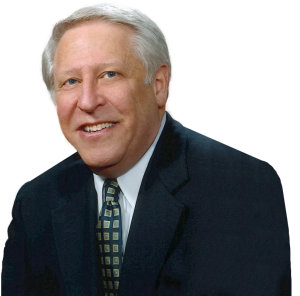Publication Source: New York Law Journal

The authority . . . entrusted to members of the legal profession and the influence that these individuals exercise in the government, are the most powerful, existing security against the excesses of democracy. . . . The American aristocracy . . . it is not among the rich . . . it occupies the judicial bench and the bar. When the American people are intoxicated by passion or carried away by the impetuosity of their ideas, they are checked and stopped by the almost invisible influence of their legal counselors. de Tocqueville, 'Democracy in America,' Chapter XVI, 1831.
In ten years we're gonna have one million lawyers. How much can a poor nation stand? Tom Paxton, 'One Million Lawyers,' 1985.
What do you call 100 lawyers at the bottom of the ocean? A good start. Anonymous lawyer joke, 2003.
How did we get from de Tocqueville's recognition of the importance of lawyers in American society to the current image of the legal profession as advocates of delay, nit-pickers, and promoters of frivolous litigation placing the blame for everything on someone else? It wasn't easy; it has no legitimate basis. And there is something we can all do about it.
Like 'urban myths' and 'Internet fables,' media reports and public commentary regularly spew anecdotes of lawyer misconduct and abuses by the legal system. Many of these stories have no factual basis, represent unique and isolated instances, or are distorted almost beyond recognition. But this is little comfort to the members of our profession, who bear the brunt of the public reaction to these yarns.
Each of us must take a part in the profession's response, as individuals and as members of the organized Bar. We need to be vocal and persistent in putting forth a more balanced view. We need to make the public aware of the significant contributions of attorneys to civic life and public discourse, and the important role of the profession in American society.
The public is willing to listen, if each of us would make an effort to overcome the voices of the disgruntled minority. Deep down, those who remember their civics lessons understand the importance of lawyers and the legal system. Perhaps that is why polls consistently show, even in the face of reported widespread disapproval of the legal profession in general, that people readily express approval of their own legal counselors, the ones with whom they have actual experience.
Here's What You Can Do
What can you do? Don't ignore unfair attacks on lawyers, the legal profession, judges and the judicial system. Don't repeat lawyer jokes. Respond to exaggerated and unfounded attacks by speaking out with the facts. Write letters to your community newspapers. Speak at community and organizational forums. Give lectures in your community explaining the workings of the legal system. Make sure that your local school curriculum includes lessons on the American legal system, and volunteer to speak to students on this subject. Help your bar association speak out for the profession and its values.
The American legal system remains the model for other nations seeking open societies. No other system provides the underprivileged and underfinanced with avenues to redress their grievances. Nowhere else do ordinary citizens have the opportunity for their claims, or their innocence or guilt, to be determined by their peers. Nowhere else is there a stable, readily available structure for review and determination of disputes. Nowhere else does the citizenry accept judicial resolution of disputes, even on issues as important as the presidency of the nation, without resort to violence or arms.
But, we must also recognize that we can do better. Lawyers need to overcome their visceral negative reaction to innovation or change. We need to find new ways to make the courts function for all, to disentangle litigants from endless and expensive discovery and delay. We need to make sure that our judiciary is well qualified to serve, and not beholden to political influence; that judges have necessary resources available to them to fulfill their difficult task to adjudicate disputes in a fair and expeditious manner; that judicial case management does not become an obstacle course for litigants to negotiate or a numbers game, so that dispositions are based on the merits of claims and not achieved by attrition.
The legal profession, and the legal system, must give opportunities to every qualified person, regardless of genetic characteristics or choices of life-style. And most important, we need to prove to the public that our legal system is open and equitable, and can deal with difficult problems and produce fair results.
This daunting task is already being pursued actively by the organized Bar. State, local, regional and specialty bar associations, representing a multitude of ethnic groups, religious backgrounds, political philosophies, and areas of legal practice, already deal with these issues and problems every day.
Every lawyer in New York State should be part of this effort. Join at least one bar association, and get involved in its activities. (I, of course, have a particular preference as to the one you should join.) Support efforts to speak out for the profession, and to serve the profession and the public by improving the legal system. Your support not only makes the profession stronger, but serves you by providing education as to current trends in the law, resources for law office and practice management, networking opportunities to meet and share ideas and information with peers, and, most of all, the opportunity to share the company of other lawyers.
Try it. You will find that lawyers are actually a lot of fun. And you will be reminded why lawyers are the most essential ingredient to a free, prosperous and open society.
990 Stewart Avenue, Suite 300,
Garden City, NY 11530
750 Ninth Street, Suite 501
Washington, D.C. 20001
Phone(202) 887-6726Fax:(202) 223-0358


